Constance Ore is a retired Teacher, Choir Director, and Organist. And a formidable cook.
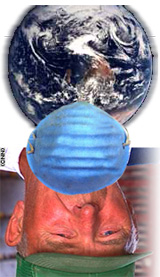
Yesterday, when I went into the Specialty Clinic for my Neupogen injection, I was placed in the small room that has a water color painting of a patio or garden entrance on the wall. It always reminds me of a wonderful back yard of a dear friend in California, so it is a place that pleases me. The door is left open into the hallway, and I am privy to everything that takes place nearby. This time it was a farmer and his wife coming out of the adjacent room, and stopping to hear the nurses’ instructions. The man’s face and arms appeared already tanned from time in the fields, and he stood bent forward just a bit twisting his cap around and around in his hands, looking at the floor. His wife stood near him, stroking her hand up and down his arm. The nurse said, “Now you know what this means, don’t you? When your white blood cell count is this low, you are very, very susceptible to infections – to getting sick. And when you are working in the fields, sometimes there are things in the soil that can really make you sick.” The man looked up and said to the nurse, “You think maybe I could wear one of them masks like the doctors and nurses sometimes do on the TV?” The nurse said gently, “Of course you can, but you just have to be so careful.” (I had counted on wearing the mask myself to work in the garden and go about, but was told by both doctors and nurses that the truly nasty sorts of things come right through and it was a mistake to count on a lot of protection from them.) The couple turned and began to walk toward the entrance quite slowly, not saying anything. It didn’t take a lot of imagination to consider that their decisions about field work and chores and going on would not be easily made.
 My own story is a happy one on this Good Friday; I went in for my third blood draw this week, and this time the readings indicate an improvement that is so fine I will consider going to church on Easter. My white blood cell count is at 2.1, a reading I haven’t seen since that day in February when we were rejoicing with white tulips and happy dances. The neutrophils, those warrior cells that must be there to hold off infections, have come all the way up to 1.0. (At their lowest count, they read 0.1, and stayed there for many weeks. The low end of normal begins at 1.6) This also tells me that for five splendid days I will not be getting injections. The up and down course of this disease has cautionary signs everywhere, but what a fine gift is this day! The dread mouth sore is waning, and life is good. My own story is a happy one on this Good Friday; I went in for my third blood draw this week, and this time the readings indicate an improvement that is so fine I will consider going to church on Easter. My white blood cell count is at 2.1, a reading I haven’t seen since that day in February when we were rejoicing with white tulips and happy dances. The neutrophils, those warrior cells that must be there to hold off infections, have come all the way up to 1.0. (At their lowest count, they read 0.1, and stayed there for many weeks. The low end of normal begins at 1.6) This also tells me that for five splendid days I will not be getting injections. The up and down course of this disease has cautionary signs everywhere, but what a fine gift is this day! The dread mouth sore is waning, and life is good.
 I will accompany Charles to church this evening and sit in the balcony to sing the hymns and hear again the story of Good Friday’s great drama. I know the readings, the solemnity of today, the quiet prayers, and the stillness of the tenebrae, but it is in the community of believers singing, listening, and speaking together that I can get a sense of how large and life changing is this action of God. And yes, because of today, I have already leapt ahead to Hallelujah’s and songs of joy and gladness! I will accompany Charles to church this evening and sit in the balcony to sing the hymns and hear again the story of Good Friday’s great drama. I know the readings, the solemnity of today, the quiet prayers, and the stillness of the tenebrae, but it is in the community of believers singing, listening, and speaking together that I can get a sense of how large and life changing is this action of God. And yes, because of today, I have already leapt ahead to Hallelujah’s and songs of joy and gladness!
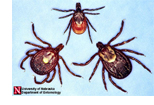 Sadly, this spring season appears to be but a brief episode. Too soon, the daffodils droop under the intensely warm south winds and the summer scourge of ticks in the forest has already arrived. When I put the Frontline between the dog’s shoulder blades with its promise to ward off the nasty bugs an entire month at a time, I was momentarily tempted to place a few drops behind my ears as well. . . “How much worse than chemotherapy could that be?” was the question in my mind. All the warnings on the box about letting the stuff touch my own skin deterred me, but I do wonder a bit. Sadly, this spring season appears to be but a brief episode. Too soon, the daffodils droop under the intensely warm south winds and the summer scourge of ticks in the forest has already arrived. When I put the Frontline between the dog’s shoulder blades with its promise to ward off the nasty bugs an entire month at a time, I was momentarily tempted to place a few drops behind my ears as well. . . “How much worse than chemotherapy could that be?” was the question in my mind. All the warnings on the box about letting the stuff touch my own skin deterred me, but I do wonder a bit.
 The reality of this disease and treatment can include mouth sores. What might have been a tiny white spot on the tongue in the ordinary mouth becomes an issue. So it began for me, but then it started to increase in size to the degree that it seemed appropriate to call the doctor. Whenever in life would one call the doctor for a sore on one’s tongue? “Come in, we must get a culture” was the reply, and so off to the oncologist’s office. Sympathy and a fierce mouthwash were given, the culture was sent away, and we returned home where I dutifully rinsed and swished the stuff about. It turned my tongue an incredible shade of blue, and I found Charles so I could show it to him. His eyebrows went straight up and he said, “Good grief, you have the tongue of a Chow-chow!” I said, “I do, don’t I. . . it is likely that I will soon have the characteristics of a Chow-chow as well.” (These dogs have a reputation for being fierce and unfriendly and prone to bite.) Then I read the small print of possible side effects, and the sentence which was most alarming stated that one could loose one’s sense of taste – permanently. Once again a time to consider the options; do I want to go forward taking a chance on losing my sense of taste with a mouth that is comfortable, or do I want to preserve my enjoyment of food in spite of a mouth that is unhappy? The reality of this disease and treatment can include mouth sores. What might have been a tiny white spot on the tongue in the ordinary mouth becomes an issue. So it began for me, but then it started to increase in size to the degree that it seemed appropriate to call the doctor. Whenever in life would one call the doctor for a sore on one’s tongue? “Come in, we must get a culture” was the reply, and so off to the oncologist’s office. Sympathy and a fierce mouthwash were given, the culture was sent away, and we returned home where I dutifully rinsed and swished the stuff about. It turned my tongue an incredible shade of blue, and I found Charles so I could show it to him. His eyebrows went straight up and he said, “Good grief, you have the tongue of a Chow-chow!” I said, “I do, don’t I. . . it is likely that I will soon have the characteristics of a Chow-chow as well.” (These dogs have a reputation for being fierce and unfriendly and prone to bite.) Then I read the small print of possible side effects, and the sentence which was most alarming stated that one could loose one’s sense of taste – permanently. Once again a time to consider the options; do I want to go forward taking a chance on losing my sense of taste with a mouth that is comfortable, or do I want to preserve my enjoyment of food in spite of a mouth that is unhappy?
 The oncologist also decided that I needed to continue the daily Neupogen shots so on my morning trek to the clinic here in Seward, I asked the nurse on duty about mouth sores. She said, “Rinse with salt water, lots of times, it works as well as anything.” I have found that the nurses have practical advise that they willingly share if asked, and I went on, “Do you see lots of these sorts of things?” She replied, “Yes. . . you have just the one in your mouth, sometimes people have many, and just last week, someone decided to stop chemotherapy because the quality of life was reaching a point where it wasn’t worth it anymore.” I thought about that all the way home, but then the day’s walk presented a perfectly beautiful blue sky supporting a perfectly shaped cloud hanging just so over the tops of the Austrian pines that lined the edge of the forest. We stopped for a moment to admire and remember the sight of it. Each day holds many such encounters with lovely aspects of life so always there is enjoyment and that in turn engenders hope for the future. The oncologist also decided that I needed to continue the daily Neupogen shots so on my morning trek to the clinic here in Seward, I asked the nurse on duty about mouth sores. She said, “Rinse with salt water, lots of times, it works as well as anything.” I have found that the nurses have practical advise that they willingly share if asked, and I went on, “Do you see lots of these sorts of things?” She replied, “Yes. . . you have just the one in your mouth, sometimes people have many, and just last week, someone decided to stop chemotherapy because the quality of life was reaching a point where it wasn’t worth it anymore.” I thought about that all the way home, but then the day’s walk presented a perfectly beautiful blue sky supporting a perfectly shaped cloud hanging just so over the tops of the Austrian pines that lined the edge of the forest. We stopped for a moment to admire and remember the sight of it. Each day holds many such encounters with lovely aspects of life so always there is enjoyment and that in turn engenders hope for the future.
 Today I had an additional blood draw to see if the extra days of Neupogen stopped the dropping numbers. They did, with an incremental improvement in the counts, so I am hopeful that now I will enter the “no shot zone” of the calendar. This should give the body’s tissues a time to regroup and rest before the next round of chemotherapy which begins in ten days. Over the weekend we did the math and determined that it was highly unlikely that the immune system would come up to a place where a long trip by air to Russia would be an acceptable activity, so with great reluctance, we took the initial steps to cancel our trip there with the Abendmusik Chorus. We immediately began to direct our energies to a family get-together in the Colorado mountains instead; this way the summer will not be a time of loss, but rather a diversion – another time, we say, and Moscow and St. Petersburg will be still there for our viewing. Today I had an additional blood draw to see if the extra days of Neupogen stopped the dropping numbers. They did, with an incremental improvement in the counts, so I am hopeful that now I will enter the “no shot zone” of the calendar. This should give the body’s tissues a time to regroup and rest before the next round of chemotherapy which begins in ten days. Over the weekend we did the math and determined that it was highly unlikely that the immune system would come up to a place where a long trip by air to Russia would be an acceptable activity, so with great reluctance, we took the initial steps to cancel our trip there with the Abendmusik Chorus. We immediately began to direct our energies to a family get-together in the Colorado mountains instead; this way the summer will not be a time of loss, but rather a diversion – another time, we say, and Moscow and St. Petersburg will be still there for our viewing.
 Sunrise straight from the east, willows are green and the pasture is giving way from the silvers and tans of winter to very bright new color coming up from beneath. This Saturday is filled with memories of years of final preparations for Holy Week. Large buckets would be standing in the upright freezer at St. John School holding Sunday morning’s supply of palms as they awaited their trip into church in the hands of children on the next day, Palm Sunday. Music rehearsals would sound with “Hallelujahs!” while the solemn and quiet sounds of Lent continued in the worship events. Sunrise straight from the east, willows are green and the pasture is giving way from the silvers and tans of winter to very bright new color coming up from beneath. This Saturday is filled with memories of years of final preparations for Holy Week. Large buckets would be standing in the upright freezer at St. John School holding Sunday morning’s supply of palms as they awaited their trip into church in the hands of children on the next day, Palm Sunday. Music rehearsals would sound with “Hallelujahs!” while the solemn and quiet sounds of Lent continued in the worship events.
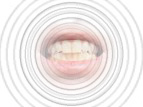 Today’s activity will center on a small spot on my abdomen since the Neupogen shots must continue, and my upper arms have gone into revolt. From the elbow upward, the tissue has been accepting countless injections of foreign material, and asked to absorb and send it forth into the rest of the body. At first the soft underarm flesh seemed happy to oblige, but as time has gone on, the bruises remain, the outer skin has begun to flake away in circles, and the injections themselves cause a teeth jarring ache to spread out and away. It seems the moment I made the decision that the belly would have to take its turn, it began to itch and inform that it was not delighted. I am reluctant to use the upper thighs because the first attempt left me in discomfort for an entire week after as I went walking. Today’s activity will center on a small spot on my abdomen since the Neupogen shots must continue, and my upper arms have gone into revolt. From the elbow upward, the tissue has been accepting countless injections of foreign material, and asked to absorb and send it forth into the rest of the body. At first the soft underarm flesh seemed happy to oblige, but as time has gone on, the bruises remain, the outer skin has begun to flake away in circles, and the injections themselves cause a teeth jarring ache to spread out and away. It seems the moment I made the decision that the belly would have to take its turn, it began to itch and inform that it was not delighted. I am reluctant to use the upper thighs because the first attempt left me in discomfort for an entire week after as I went walking.
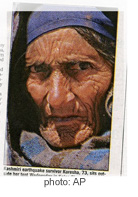 Always, there are far worse lives to contemplate. This morning’s paper displays the face of a 73 year old woman who is a survivor of the Kashmiri earthquake. She has a tent in which to make her bed, and her eyes are so fierce and full of pain they refuse to be forgotten. The incredible distance between her day and mine cannot be measured. Perhaps she would welcome death in order to end her ordeal of life on earth. I do not know, but hopefully, when her death comes, a paradise awaits her. Always, there are far worse lives to contemplate. This morning’s paper displays the face of a 73 year old woman who is a survivor of the Kashmiri earthquake. She has a tent in which to make her bed, and her eyes are so fierce and full of pain they refuse to be forgotten. The incredible distance between her day and mine cannot be measured. Perhaps she would welcome death in order to end her ordeal of life on earth. I do not know, but hopefully, when her death comes, a paradise awaits her.
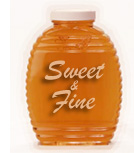 I, on the other hand, have all possible resources to make this day sweet and fine, and life touches me inwardly and outwardly in a most acceptable fashion; no matter where I look, I have a future. Never is this more powerfully apparent then in Holy Week and Easter. This time comes with its retelling of the familiar story of Christ’s inexorable journey toward sacrificial death and wondrous return to life. These above all teachings of the Christian faith bring forgiveness, peace and empowerment. Today I will tell my belly to do its best and I will fill my head with sounds of countless hymns and spiritual songs taught and played and sung in the past to remember and celebrate this holiest of weeks. Today I will not cry. I, on the other hand, have all possible resources to make this day sweet and fine, and life touches me inwardly and outwardly in a most acceptable fashion; no matter where I look, I have a future. Never is this more powerfully apparent then in Holy Week and Easter. This time comes with its retelling of the familiar story of Christ’s inexorable journey toward sacrificial death and wondrous return to life. These above all teachings of the Christian faith bring forgiveness, peace and empowerment. Today I will tell my belly to do its best and I will fill my head with sounds of countless hymns and spiritual songs taught and played and sung in the past to remember and celebrate this holiest of weeks. Today I will not cry.
« Previous Page — Next Page »
|

 My own story is a happy one on this Good Friday; I went in for my third blood draw this week, and this time the readings indicate an improvement that is so fine I will consider going to church on Easter. My white blood cell count is at 2.1, a reading I haven’t seen since that day in February when we were rejoicing with white tulips and happy dances. The neutrophils, those warrior cells that must be there to hold off infections, have come all the way up to 1.0. (At their lowest count, they read 0.1, and stayed there for many weeks. The low end of normal begins at 1.6) This also tells me that for five splendid days I will not be getting injections. The up and down course of this disease has cautionary signs everywhere, but what a fine gift is this day! The dread mouth sore is waning, and life is good.
My own story is a happy one on this Good Friday; I went in for my third blood draw this week, and this time the readings indicate an improvement that is so fine I will consider going to church on Easter. My white blood cell count is at 2.1, a reading I haven’t seen since that day in February when we were rejoicing with white tulips and happy dances. The neutrophils, those warrior cells that must be there to hold off infections, have come all the way up to 1.0. (At their lowest count, they read 0.1, and stayed there for many weeks. The low end of normal begins at 1.6) This also tells me that for five splendid days I will not be getting injections. The up and down course of this disease has cautionary signs everywhere, but what a fine gift is this day! The dread mouth sore is waning, and life is good.  I will accompany Charles to church this evening and sit in the balcony to sing the hymns and hear again the story of Good Friday’s great drama. I know the readings, the solemnity of today, the quiet prayers, and the stillness of the tenebrae, but it is in the community of believers singing, listening, and speaking together that I can get a sense of how large and life changing is this action of God. And yes, because of today, I have already leapt ahead to Hallelujah’s and songs of joy and gladness!
I will accompany Charles to church this evening and sit in the balcony to sing the hymns and hear again the story of Good Friday’s great drama. I know the readings, the solemnity of today, the quiet prayers, and the stillness of the tenebrae, but it is in the community of believers singing, listening, and speaking together that I can get a sense of how large and life changing is this action of God. And yes, because of today, I have already leapt ahead to Hallelujah’s and songs of joy and gladness!  Sadly, this spring season appears to be but a brief episode. Too soon, the daffodils droop under the intensely warm south winds and the summer scourge of ticks in the forest has already arrived. When I put the Frontline between the dog’s shoulder blades with its promise to ward off the nasty bugs an entire month at a time, I was momentarily tempted to place a few drops behind my ears as well. . . “How much worse than chemotherapy could that be?” was the question in my mind. All the warnings on the box about letting the stuff touch my own skin deterred me, but I do wonder a bit.
Sadly, this spring season appears to be but a brief episode. Too soon, the daffodils droop under the intensely warm south winds and the summer scourge of ticks in the forest has already arrived. When I put the Frontline between the dog’s shoulder blades with its promise to ward off the nasty bugs an entire month at a time, I was momentarily tempted to place a few drops behind my ears as well. . . “How much worse than chemotherapy could that be?” was the question in my mind. All the warnings on the box about letting the stuff touch my own skin deterred me, but I do wonder a bit. The reality of this disease and treatment can include mouth sores. What might have been a tiny white spot on the tongue in the ordinary mouth becomes an issue. So it began for me, but then it started to increase in size to the degree that it seemed appropriate to call the doctor. Whenever in life would one call the doctor for a sore on one’s tongue? “Come in, we must get a culture” was the reply, and so off to the oncologist’s office. Sympathy and a fierce mouthwash were given, the culture was sent away, and we returned home where I dutifully rinsed and swished the stuff about. It turned my tongue an incredible shade of blue, and I found Charles so I could show it to him. His eyebrows went straight up and he said, “Good grief, you have the tongue of a Chow-chow!” I said, “I do, don’t I. . . it is likely that I will soon have the characteristics of a Chow-chow as well.” (These dogs have a reputation for being fierce and unfriendly and prone to bite.) Then I read the small print of possible side effects, and the sentence which was most alarming stated that one could loose one’s sense of taste – permanently. Once again a time to consider the options; do I want to go forward taking a chance on losing my sense of taste with a mouth that is comfortable, or do I want to preserve my enjoyment of food in spite of a mouth that is unhappy?
The reality of this disease and treatment can include mouth sores. What might have been a tiny white spot on the tongue in the ordinary mouth becomes an issue. So it began for me, but then it started to increase in size to the degree that it seemed appropriate to call the doctor. Whenever in life would one call the doctor for a sore on one’s tongue? “Come in, we must get a culture” was the reply, and so off to the oncologist’s office. Sympathy and a fierce mouthwash were given, the culture was sent away, and we returned home where I dutifully rinsed and swished the stuff about. It turned my tongue an incredible shade of blue, and I found Charles so I could show it to him. His eyebrows went straight up and he said, “Good grief, you have the tongue of a Chow-chow!” I said, “I do, don’t I. . . it is likely that I will soon have the characteristics of a Chow-chow as well.” (These dogs have a reputation for being fierce and unfriendly and prone to bite.) Then I read the small print of possible side effects, and the sentence which was most alarming stated that one could loose one’s sense of taste – permanently. Once again a time to consider the options; do I want to go forward taking a chance on losing my sense of taste with a mouth that is comfortable, or do I want to preserve my enjoyment of food in spite of a mouth that is unhappy?  The oncologist also decided that I needed to continue the daily Neupogen shots so on my morning trek to the clinic here in Seward, I asked the nurse on duty about mouth sores. She said, “Rinse with salt water, lots of times, it works as well as anything.” I have found that the nurses have practical advise that they willingly share if asked, and I went on, “Do you see lots of these sorts of things?” She replied, “Yes. . . you have just the one in your mouth, sometimes people have many, and just last week, someone decided to stop chemotherapy because the quality of life was reaching a point where it wasn’t worth it anymore.” I thought about that all the way home, but then the day’s walk presented a perfectly beautiful blue sky supporting a perfectly shaped cloud hanging just so over the tops of the Austrian pines that lined the edge of the forest. We stopped for a moment to admire and remember the sight of it. Each day holds many such encounters with lovely aspects of life so always there is enjoyment and that in turn engenders hope for the future.
The oncologist also decided that I needed to continue the daily Neupogen shots so on my morning trek to the clinic here in Seward, I asked the nurse on duty about mouth sores. She said, “Rinse with salt water, lots of times, it works as well as anything.” I have found that the nurses have practical advise that they willingly share if asked, and I went on, “Do you see lots of these sorts of things?” She replied, “Yes. . . you have just the one in your mouth, sometimes people have many, and just last week, someone decided to stop chemotherapy because the quality of life was reaching a point where it wasn’t worth it anymore.” I thought about that all the way home, but then the day’s walk presented a perfectly beautiful blue sky supporting a perfectly shaped cloud hanging just so over the tops of the Austrian pines that lined the edge of the forest. We stopped for a moment to admire and remember the sight of it. Each day holds many such encounters with lovely aspects of life so always there is enjoyment and that in turn engenders hope for the future. Today I had an additional blood draw to see if the extra days of Neupogen stopped the dropping numbers. They did, with an incremental improvement in the counts, so I am hopeful that now I will enter the “no shot zone” of the calendar. This should give the body’s tissues a time to regroup and rest before the next round of chemotherapy which begins in ten days. Over the weekend we did the math and determined that it was highly unlikely that the immune system would come up to a place where a long trip by air to Russia would be an acceptable activity, so with great reluctance, we took the initial steps to cancel our trip there with the Abendmusik Chorus. We immediately began to direct our energies to a family get-together in the Colorado mountains instead; this way the summer will not be a time of loss, but rather a diversion – another time, we say, and Moscow and St. Petersburg will be still there for our viewing.
Today I had an additional blood draw to see if the extra days of Neupogen stopped the dropping numbers. They did, with an incremental improvement in the counts, so I am hopeful that now I will enter the “no shot zone” of the calendar. This should give the body’s tissues a time to regroup and rest before the next round of chemotherapy which begins in ten days. Over the weekend we did the math and determined that it was highly unlikely that the immune system would come up to a place where a long trip by air to Russia would be an acceptable activity, so with great reluctance, we took the initial steps to cancel our trip there with the Abendmusik Chorus. We immediately began to direct our energies to a family get-together in the Colorado mountains instead; this way the summer will not be a time of loss, but rather a diversion – another time, we say, and Moscow and St. Petersburg will be still there for our viewing. Sunrise straight from the east, willows are green and the pasture is giving way from the silvers and tans of winter to very bright new color coming up from beneath. This Saturday is filled with memories of years of final preparations for Holy Week. Large buckets would be standing in the upright freezer at St. John School holding Sunday morning’s supply of palms as they awaited their trip into church in the hands of children on the next day, Palm Sunday. Music rehearsals would sound with “Hallelujahs!” while the solemn and quiet sounds of Lent continued in the worship events.
Sunrise straight from the east, willows are green and the pasture is giving way from the silvers and tans of winter to very bright new color coming up from beneath. This Saturday is filled with memories of years of final preparations for Holy Week. Large buckets would be standing in the upright freezer at St. John School holding Sunday morning’s supply of palms as they awaited their trip into church in the hands of children on the next day, Palm Sunday. Music rehearsals would sound with “Hallelujahs!” while the solemn and quiet sounds of Lent continued in the worship events. Today’s activity will center on a small spot on my abdomen since the Neupogen shots must continue, and my upper arms have gone into revolt. From the elbow upward, the tissue has been accepting countless injections of foreign material, and asked to absorb and send it forth into the rest of the body. At first the soft underarm flesh seemed happy to oblige, but as time has gone on, the bruises remain, the outer skin has begun to flake away in circles, and the injections themselves cause a teeth jarring ache to spread out and away. It seems the moment I made the decision that the belly would have to take its turn, it began to itch and inform that it was not delighted. I am reluctant to use the upper thighs because the first attempt left me in discomfort for an entire week after as I went walking.
Today’s activity will center on a small spot on my abdomen since the Neupogen shots must continue, and my upper arms have gone into revolt. From the elbow upward, the tissue has been accepting countless injections of foreign material, and asked to absorb and send it forth into the rest of the body. At first the soft underarm flesh seemed happy to oblige, but as time has gone on, the bruises remain, the outer skin has begun to flake away in circles, and the injections themselves cause a teeth jarring ache to spread out and away. It seems the moment I made the decision that the belly would have to take its turn, it began to itch and inform that it was not delighted. I am reluctant to use the upper thighs because the first attempt left me in discomfort for an entire week after as I went walking. Always, there are far worse lives to contemplate. This morning’s paper displays the face of a 73 year old woman who is a survivor of the Kashmiri earthquake. She has a tent in which to make her bed, and her eyes are so fierce and full of pain they refuse to be forgotten. The incredible distance between her day and mine cannot be measured. Perhaps she would welcome death in order to end her ordeal of life on earth. I do not know, but hopefully, when her death comes, a paradise awaits her.
Always, there are far worse lives to contemplate. This morning’s paper displays the face of a 73 year old woman who is a survivor of the Kashmiri earthquake. She has a tent in which to make her bed, and her eyes are so fierce and full of pain they refuse to be forgotten. The incredible distance between her day and mine cannot be measured. Perhaps she would welcome death in order to end her ordeal of life on earth. I do not know, but hopefully, when her death comes, a paradise awaits her.  I, on the other hand, have all possible resources to make this day sweet and fine, and life touches me inwardly and outwardly in a most acceptable fashion; no matter where I look, I have a future. Never is this more powerfully apparent then in Holy Week and Easter. This time comes with its retelling of the familiar story of Christ’s inexorable journey toward sacrificial death and wondrous return to life. These above all teachings of the Christian faith bring forgiveness, peace and empowerment. Today I will tell my belly to do its best and I will fill my head with sounds of countless hymns and spiritual songs taught and played and sung in the past to remember and celebrate this holiest of weeks. Today I will not cry.
I, on the other hand, have all possible resources to make this day sweet and fine, and life touches me inwardly and outwardly in a most acceptable fashion; no matter where I look, I have a future. Never is this more powerfully apparent then in Holy Week and Easter. This time comes with its retelling of the familiar story of Christ’s inexorable journey toward sacrificial death and wondrous return to life. These above all teachings of the Christian faith bring forgiveness, peace and empowerment. Today I will tell my belly to do its best and I will fill my head with sounds of countless hymns and spiritual songs taught and played and sung in the past to remember and celebrate this holiest of weeks. Today I will not cry.